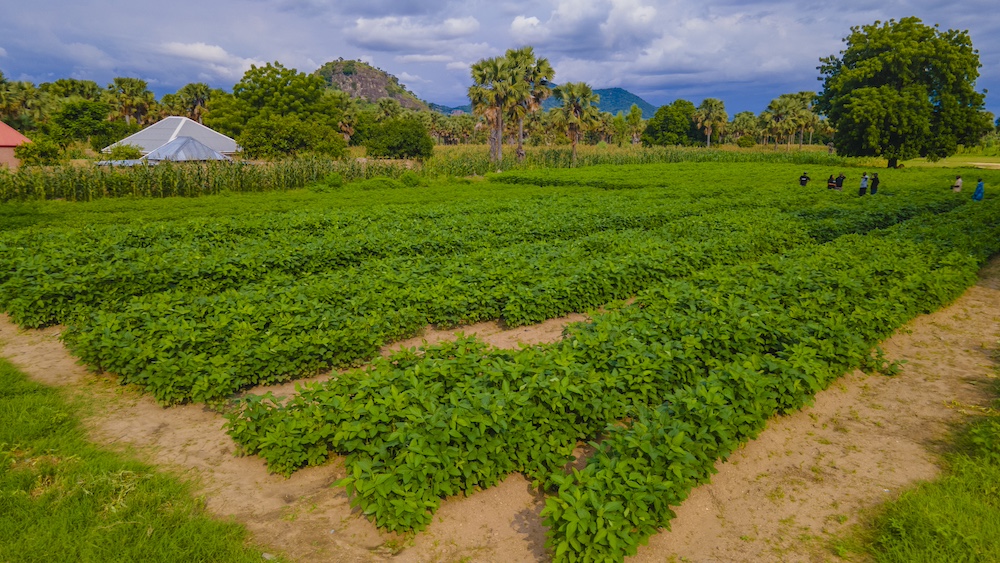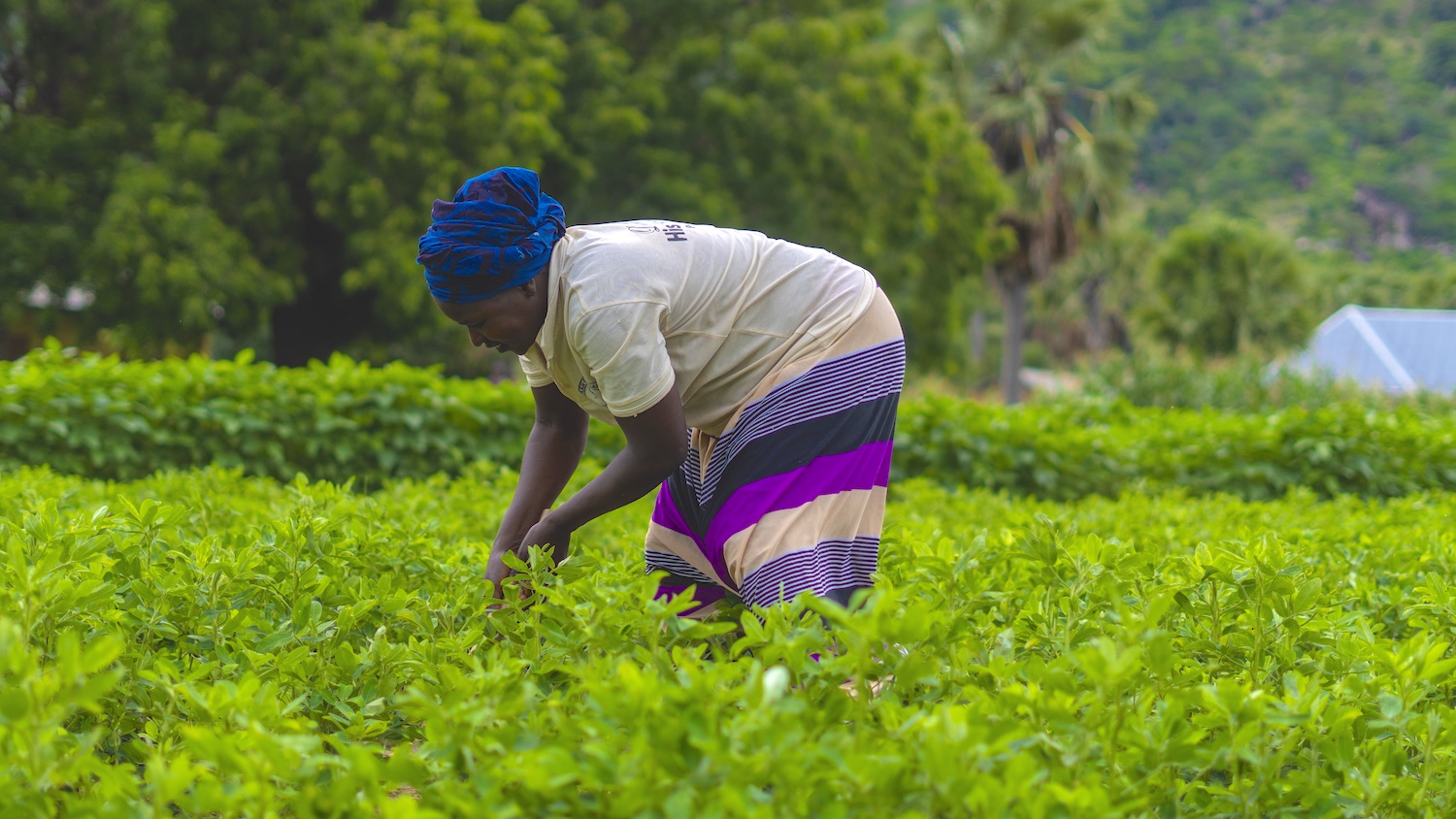Nuru Nigeria Trains Farmers on Composting
Composting is a climate-smart and regenerative agricultural practice that significantly enhances soil health and overall sustainability. Nuru Nigeria trains farmers on how to compost, supporting increased yields over time, as healthy soil is vital to plant growth. Additionally, farmers can sell their excess compost as an extra source of income, while contributing to the supply of local compost materials for other local farmers to buy and utilize. Composting benefits Nuru Nigeria-supported farmers, the overall soil health, and provides additional income for farmers and their households.
Benefits of Composting
What is composting? Composting is a natural method of converting everyday organic waste, such as food scraps and manure, into nutrient-rich natural fertilizer for plants. This process involves piling, mixing, and moistening the organic material to undergo decomposition. After it decomposes, this natural fertilizer enhances soil fertility and improves the soil’s ability to retain water. Compost enriches the soil with essential nutrients like nitrogen, phosphorus, and potassium. By equipping farmers to compost, Nuru Nigeria decreases farmers’ reliance on chemical-based fertilizers that are often expensive and can degrade the soil quality over time.
Nuru Nigeria Teaches Composting
The climate-smart agriculture practice of composting aligns with the COP 28 global commitment to enhance soil fertility and maximize the climate and environmental benefits through enhancing soil health and biodiversity. Rural smallholders farmers need access to the critical climate-smart training and resources that will equip them to increase their crop yields and ultimately increase their incomes. This is evidenced by the notably low yields that Nuru Nigeria observed among smallholder farmers in northeast Nigeria. Nuru Nigeria identified this gap in agricultural support and witnessed the compounding challenges that farmers faced with the effects of climate change, as soil has become depleted, fertilizer quality has been compromised, and access to fertilizer is increasingly difficult. These challenges not only impact crop yields, but they also impact farmers’ income and ability to build their resilience.

Farm land, Nigeria, 2023
Nuru Nigeria conducts training to equip farmers with the practical knowledge and skills to create organic fertilizer in northeast Nigeria. These training programs cover composting techniques, material selection, and maintenance practices. The aim of the training is to equip the farmers with alternative low-cost fertilizer that is environmentally friendly, sustainable, and easy to produce using locally-sourced raw materials.
Sharing real-life stories and experiences from farmers who have successfully implemented composting has been a powerful way to inspire other farmers to adopt composting as a climate-smart agriculture practice. When farmers see the potential economic benefits of composting, they are inspired to consider selling excess compost as a way to diversify their own income streams and improve their household incomes.
Nuru Nigeria Farmer: Ezekiel
Ezekiel, a member of a Nuru Nigeria-supported farmer cooperative in northeast Nigeria, has practiced traditional farming methods on a small piece of land for years. Before joining Nuru, Ezekiel was farming to support his family, but not harvesting enough to improve his household income. He did not have enough money to buy chemical fertilizer, and he had very few educational resources to learn about soybean farming. Ezekiel’s life took a transformative turn when Nuru Nigeria began working in his community. Ezekiel shares the impact of being part of a Nuru Nigeria-supported cooperative below:
“My encounter with Nuru Nigeria has changed my orientation about life and farming. They taught us how to cultivate soybeans and groundnuts to get a good harvest. They also taught us how to farm using organic manure. They did not stop at that. They further taught us how to make organic compost using the available materials around us. I tried making the organic compost in a small quantity and showed it to the people in my community. I also educated them on the benefit of using the organic compost on their farms. I sold out the organic compost I made and used the money I got from the sales to open a shop where I sell things to make more gains.”

Nuru Nigeria Farmer, Ezekiel, 2024
With the increased income, Ezekiel was able to begin saving money, and he used this savings to purchase a cow. He is still composting raw food materials and cow manure to make more fertilizer. People now buy compost in large quantities from Ezekiel, leading him to increase his production to meet the high demands from the people in his community. Ezekiel is eager to train other farmers in his community on organic compost making.
Nuru Nigeria Farmer: Vandi
Vandi, another Nuru Nigeria farmer, also shared that buying inorganic fertilizer was expensive, and other farmers in his community could not afford it. Poor soil nutrients and a lack of fertilizer made farming challenging. When Nuru Nigeria began working in Vandi’s community, he and the other farmers were excited to learn how to make compost due to its low cost. Just like Ezekiel, Vandi and his fellow farmers were able to create compost by utilizing easily accessible items like leaves and animal droppings. Farmers also appreciated the convenience of making the compost near their homes, facilitating effective monitoring of the process.
Vandi shares, “I have used the organic compost fertilizer on my permagarden and several of my farms, and I have seen the difference between the organic and inorganic fertilizers.” Vandi has permanently changed his farming practices to include organic compost, believing that it improves the soil quality, and he continues to encourage other farmers in his community to shift to composting as well.

Nuru Nigeria Farmer, Vandi, 2024
Future of Composting Activities at Nuru Nigeria
Composting will continue to be a valuable part of Nuru Nigeria’s efforts to support smallholder farmers and improve soil health. It’s a simple yet powerful tool that is key to climate-smart agriculture, food security, and environmental conservation. By embracing composting, we can create healthier soils and crops for generations. Nuru Nigeria plans to scale up its composting initiatives, reaching more farmers and communities across northeast Nigeria. By expanding training programs, providing resources, and fostering partnerships, Nuru Nigeria aims to make composting a mainstream practice. As Nuru continues to prioritize soil health and sustainability, composting will play a central role in shaping agricultural landscapes for the better while equipping farmers to build their resilience and overcome extreme poverty.


